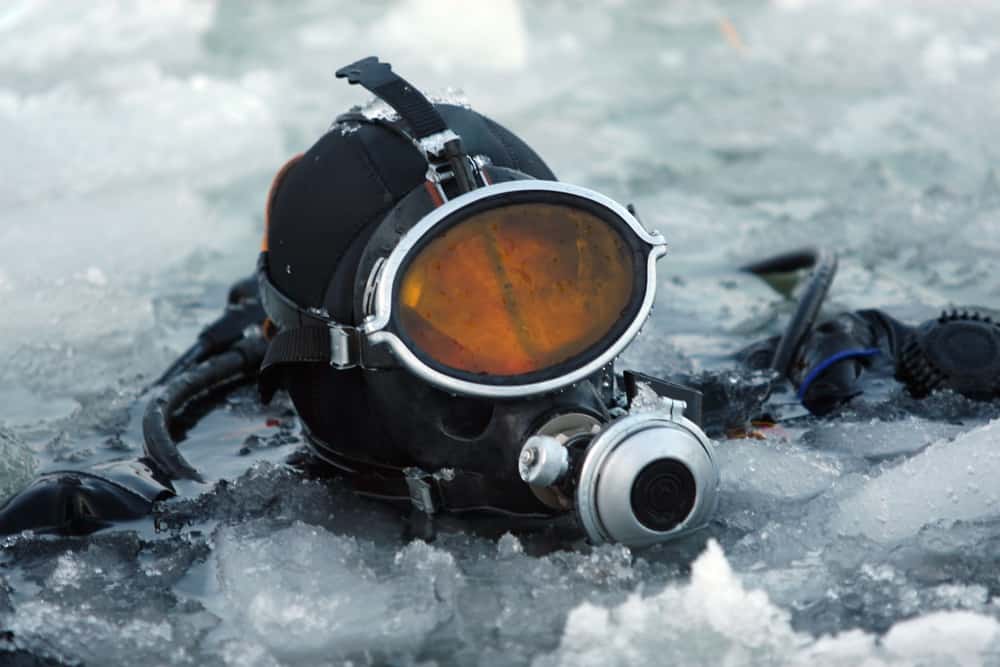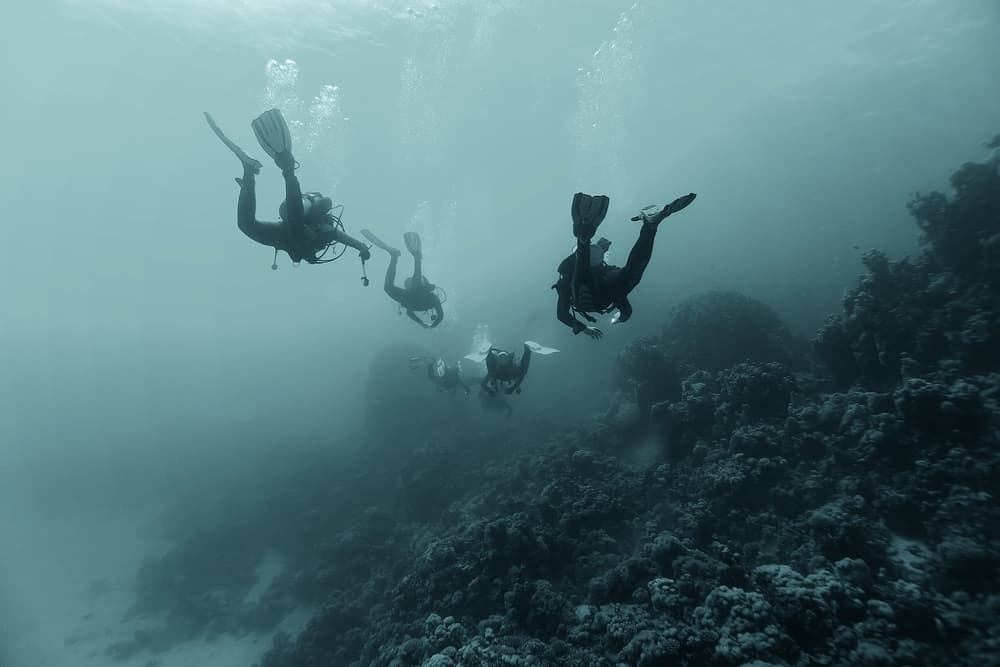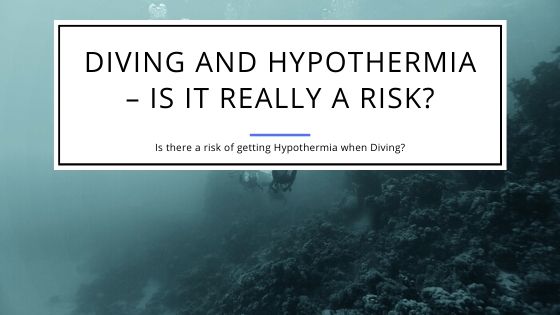Diving and Hypothermia – Is It Really A Risk?
Scuba diving isn’t just a fun summer activity that can be done on tropical islands alongside warm sandy beaches. Cold water dives allow scuba divers to discover whole new underwater experiences with unique landscapes and marine life all over the world.
You might have only thought of Bali, the Bahamas, and Hawaii for dives while writing off locations like Switzerland, Norway, and Scotland. This would be a mistake. These locations offer crystal clear water with unbelievable marine life and exploration-worthy wrecks.
However, when you do think about locations like the ones mentioned above, you need to be aware of the very real threat of hypothermia. Coldwater dives pose the threat of this condition, so divers should be aware of it; what it is, how it happens, how to identify it, how to prevent it and how to deal with it if it occurs. Below we are going to discuss all these things to make sure you are well-informed about hypothermia:
What Is Hypothermia?
Hypothermia is a condition in which your body temperature drops below its normal 37 C (98.6 F). The body needs to be at this temperature to perform metabolic and body functions. Your body tries to regenerate the heat through its internal mechanisms. If your body keeps losing heat at a faster rate than it can regenerate it, hypothermia sets in.
Hypothermia has stages, depending on how low the core temperature of the body goes. Mild hypothermia can start at 35 C (95 F), which is where you can start noticing the first signs of shivering and numbness in the limbs. Moderate hypothermia sets in if your temperature drops below 32 C (89.6 F) and finally severe hypothermia at 28 C (82.4 F). In this last stage, a person can lose consciousness, which can be detrimental to their life.
What Are the Signs Of Hypothermia?
Once the body temperature has fallen below normal, its first defense mechanism is to start shivering. Shivering is the body’s attempt to warm itself.
With hypothermia, a person’s pulse starts to slow down because of the reduced circulation of blood. With a weakened pulse, a person starts breathing slower and starts getting disoriented.
The next thing you will notice is slurred speech, confusion, irritability, and lethargy. At advanced stages of hypothermia, the pulse slows to a stop and as does the breathing, causing the person to lose consciousness.
Can You Get Hypothermia in Warm Water?
Yes, it is possible to get hypothermia in warm water. Your body starts losing heat anytime its environment is colder than 37 C (98.6 F).
Due to conductive properties, heat loss is 25 times faster in water than it is in air. The process of heat loss is slower in warm water, which causes the body to skip some of the initial symptoms of hypothermia, such as mild shivering.
In warm water, if the diver does experience hypothermia, they will only notice it when it is at the moderate or severe stage. Fatigue and low motivation may occur as the first few signs, but because of the slow loss of heat, a diver may go straight to violent shivering and lack of coordination; the body temperature will have already dropped too low before the diver even notices.
What Temperature Water Gives You Hypothermia?
Any water temperature that is lower than normal body temperature can potentially give you hypothermia. This means water bodies below 37 C (98.6 F) have the ability to give you hypothermia, so take precautions through wetsuits and drysuits before getting into the water.

What Are The Primary Factors For Heat Loss For Divers?
There are four factors that can cause heat loss; namely conduction, convection, radiation and evaporation. However, heat loss for divers does not have anything to do with radiation or evaporation. Conduction and convection play their part in heat loss and possible hypothermia, here’s how:
Conduction
This is the transfer of heat between two surfaces of any state that are in contact with each other; heat is transferred from the warmer surface to the cooler one until they are both the same temperature. When a diver enters cold water, conduction from the diver’s body to the surrounding water starts the heat loss process.
Convection
Convection is the process of heat transferred within a liquid or gas; cooler areas of the liquid or gas sink to the bottom while warmer areas rise to the top. As conduction occurs in the water, that warmer water will rise to the top and be replaced by cooler water; thus cause the diver to lose more heat. As the diver goes deeper into the water, the water tends to be cooler because of the same process.
These two factors work in tandem, causing heat loss from divers’ bodies.
How Can You Prevent Hypothermia?
The first way to prevent hypothermia is by being properly protected from the elements. If you know you are going into cold water, make sure you have a thick wetsuit between 5mm and 7mm. For very cold and frigid water make sure you have a semi-dry or drysuit, under which you should layer appropriately. Use accessories like hoods, boots, and gloves to protect every area of your body.
Once you are out of the water, change into dry clothes immediately. Layer on clothing, with wool and fleece closest to your body; they will keep you warmer than polyester and other fabrics even if they are slightly wet.
Drink plenty of water before the dive and have a warm drink with sugar and no caffeine once you are out. Avoid drinking alcohol; there is a common misconception that alcohol will keep your body warm, but it has the opposite effect.
How to Deal with Hypothermia?
Before dealing with hypothermia on your own, decide if you need a medical professional, and call one immediately if you do. To deal with hypothermia while waiting for the professional, you need to first try to prevent any further heat loss from the body, and then reintroduce heat back in.
First, get the diver out of the water and remove wet clothing. Cover their body with dry clothes and blankets; avoid as much expose to wind and weather as you can to prevent further heat loss. Next, move the person to a warm and preferably enclosed space.
Once inside, you can use hot water bottles and heated blankets to further warm the body. And if they are able, get them to sip on a warm decaffeinated sweetened drink. Keep in mind that you need to handle a person suffering from hypothermia with care as their organs and body are in shock and vulnerable.
One thing to remember, never warm up with a hot bath or by massaging the limbs to generate heat. The body can go into shock, blood pressure can drop and the results could be fatal.

Final Thoughts
Though the cold shock is more fatal and more common than hypothermia, it is still better for divers to be informed about the effects of the condition. Hypothermia can be fatal if it is not identified and dealt with properly. Avoid getting hypothermia by protecting yourself from the elements as best you can before your dive, and once you are out of the water. The better informed you are, the safer you will be!

